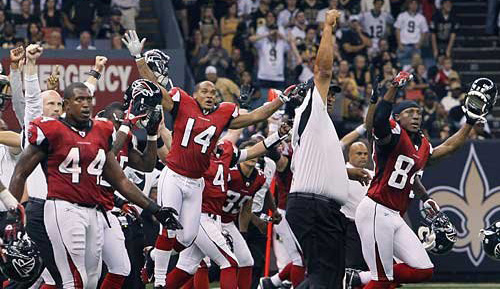Monday Morning Quarterback Part I
By BOP Staff
September 27, 2010
Matthew Huntley: My answer to Kim's question is yes and no.
Yes, because Fox was able to accomplish something that's sort of rare these days - produce and release a movie about a timely but sore issue and debut at number one. If the plethora of movies about the Iraq War have taught Hollywood anything, it's that sensitive subjects - in the case of Wall Street, the crashing stock market and controversial bailouts - hardly make for strong box - office returns. Given the reputation of topical movies, $19 million is solid start.
No, because the movie cost $70 million to produce and its internal multiplier is rather small (it jumped less than 11% on Saturday). I don't foresee long legs for Wall Street and I can't imagine it will have much of a draw outside of the United States. In the end, I think the movie will end up costing the studio, but they were probably wise to hold off releasing it until now (wasn't it supposed to be released last spring?) since they probably made more now than they would have earlier (due to the slow time of year).
Shalimar Sahota: Fox has described the result as, "a terrific number," but we all know that secretly they were looking for a little more. As Matthew has already mentioned, there's that $70 million production budget, which I don't see the film recuperating domestically. Admittedly, I've not seen the original, and the release of this has me curious in wanting to track it down, though I'm sure it's likely to pop up on TV now! I'm on both sides that we don't go to the cinema to be reminded about the real world. Sure, we'll pay for our two hours of escapism, and that probably applies to the most of us, but quite simply some of us are drawn to stories that do hit close to home. Not all films exist solely as entertainment. Looking at Oliver Stone's past films, most of them are about historical real events. As sensitive as it was, his last big hit was World Trade Center, which took over $160 million worldwide! Given the premise of the Wall Street sequel, it's something that still feels current, and I don't know if it actually offers a logical answer as to how the financial crisis happened. If it does, then maybe those who just so happened to be unaware will be enlightened by it, though it might not make audiences feel better if it makes them think about the credit card they used to pay for their tickets. Also, I'm suddenly reminded of the likes of Escape From L.A., Blues Brothers 2000, Rambo 4 and Indiana Jones & The Kingdom of the Crystal Skull - long delayed, and probably unnecessary sequels. With this opening 23 years after the original, I guess that's a record till Tron Legacy comes out.
Edwin Davies: I think they should be happy with the result, if only because the whole thing feels like they've managed to fleece the public of their hard earned cash, which in turn feels appropriate given the subject matter of the film.
As everyone else has said, this is a sequel pretty much no one thought was necessary, centered around a character a huge swathe of the moviegoing public (i.e. the late teens/early 20s demographic that Hollywood shamelessly ogles like a horny teenager) is unaware of, and dealing with the world of high finance, a subject that either makes people very angry or very bored these days. That it came away with $19 million and a #1 finish is really quite surprising.
The lack of critical support for it (it's currently languishing at 55% on the Tomatometer) probably means that its legs have been cut out from under it, but it'll probably still end up with a reasonable final tally. If nothing else, we've all got a new ridiculous subtitle to help us make fun of unnecessary sequels, in the grand tradition of Electric Boogaloo and The Squeakquel.
Continued:
1
2
3
4
|
|
|
|




